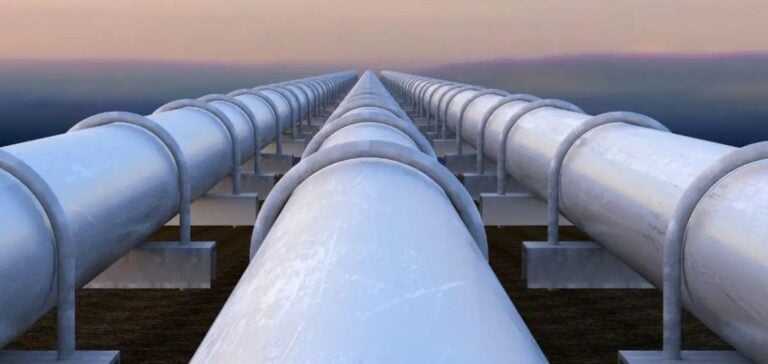Economic sanctions imposed by the United States and the European Union (EU) against Russian liquefied natural gas (LNG) have encouraged the creation of new trade channels outside the traditional financial system. Faced with regulatory constraints, commercial hubs in Asia and the Middle East are emerging to support a parallel trading market, thereby escaping Western oversight.
A Growing Commercial Ecosystem
Centers like Mumbai, Dubai, and Hong Kong play a central role in this parallel market, facilitating LNG transactions in local currencies such as the yuan. These hubs enable companies from sanctioned countries, particularly Russia and Iran, to create escrow accounts to receive payments, often in the form of barter or manufactured goods. Alexey Eremenko, associate director of Global Risk Analysis at Control Risks, explains that this trend resembles older smuggling networks but is adapted to meet the modern demands of energy trade.
This evasion network takes inspiration from similar models in oil trading, where blending and relabeling operations have allowed circumvention of restrictions. In Iran, Indonesia, and Malaysia, deep-water ports serve as transit points for these operations, providing effective coverage from regulatory scrutiny.
Regulation and Sanction Capacity Limitations
U.S. and European authorities are intensifying their surveillance measures to limit the expansion of these parallel markets, but their capacities remain limited. The U.S. Office of Foreign Assets Control (OFAC) has about 200 employees, insufficient to handle the complexity of this global parallel trade. Recent sanctions, which require banks to monitor potentially illicit transactions, have increased the effectiveness of enforcement, yet workarounds remain feasible.
The U.S. strategy is based on a balanced approach that avoids excessive pressure on third countries, such as Malaysia and the United Arab Emirates. Pressuring these countries into an adversarial position could risk drawing them closer to Russia or China, with broader geopolitical implications.
Rise of Local Currency Transactions
One notable consequence of these sanctions is the gradual abandonment of the U.S. dollar in Russian LNG exchanges. A report by the European Bank for Reconstruction and Development indicates a significant increase in yuan transactions for commodity exchanges. Russia, the world’s fourth-largest LNG producer, could thus intensify its exports in local currencies, reinforcing the structure of this parallel market.
Implications for Global Energy Markets
The evolution of this parallel market also affects global energy markets, where differentiated prices appear depending on jurisdictions and regulations. While some countries, like China and India, purchase discounted Russian LNG, these economies protect themselves from sanctions by using transaction mechanisms outside traditional financial channels.
Recent developments show that these local currency transactions are not only a means of circumventing sanctions but also an economic strategy for certain countries. Depending on geopolitical events and changes in international policies, the importance of these parallel markets could grow, with notable impacts on the global LNG market and the energy policies of the countries involved.





















